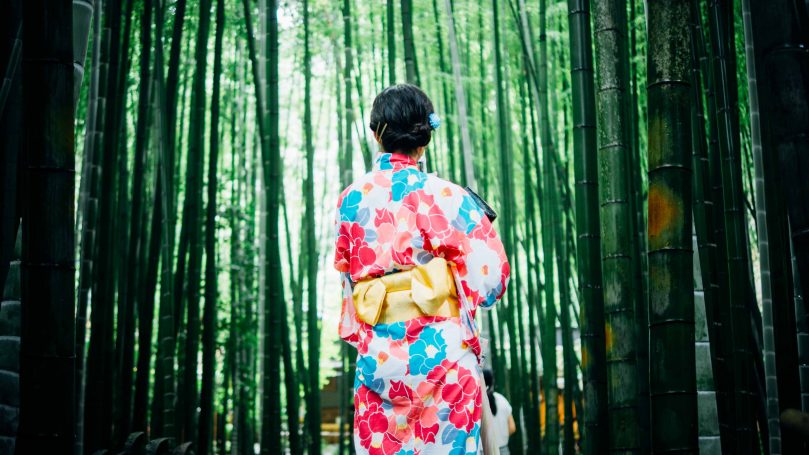The exquisite Shunkai whose other name was Suzu was compelled to marry against her wishes when she was quite young. Later, after this marriage had ended, she attended the university, where she studied philosophy.
To see Shunkai was to fall in love with her. Moreover, wherever she went, she herself fell in love with others. Love was with her at the university, and afterwards, when philosophy did not satisfy her and she visited a temple to learn about Zen, the Zen students fell in love with her. Shunkai’s whole life was saturated with love.
At last in Kyoto she became a real student of Zen. Her brothers in the sub-temple of Kennin praised her sincerity. One of them proved to be a congenial spirit and assisted her in the mastery of Zen.
The abbot of Kennin, Mokurai, Silent Thunder, was severe. He kept the precepts himself and expected his priests to do so. In modern Japan whatever zeal these priests have lost of Buddhism they seem to have gained for their wives. Mokurai used to take a broom and chase the women away when he found them in any of his temples, but the more wives he swept out, the more seemed to come back.
In this particular temple the wife of the head priest became jealous of Shunkai’s earnestness and beauty. Hearing the students praise her serious Zen made this wife squirm and itch. Finally she spread a rumor about Shunkai and the young man who was her friend. As a consequence he was expelled and Shunkai was removed from the temple.
“I may have made the mistake of love,” thought Shunkai, “but the priest’s wife shall not remain in the temple either if my friend is to be treated so unjustly.”
Shunkai the same night with a can of kerosene set fire to the five-hundred-year-old temple and burned it to the ground. In the morning she found herself in the hands of the police.
A young lawyer became interested in her and endeavored to make her sentence lighter. “Do not help me,” she told him. “I might decide to do something else which would only imprison me again.”
At last a sentence of seven years was completed, and Shunkai was released from the prison, where the sixty-year-old warden had become enamored of her.
But now everyone looked upon her as a “jailbird”. No one would associate with her. Even the Zen people, who are supposed to believe in enlightenment in this life and with this body, shunned her. Zen, Shunkai found, was one thing and the followers of Zen quite another. Her relatives would have nothing to do with her. She grew sick, poor, and weak.
She met a Shinshu priest who taught her the name of the Buddha of Love, and in this Shunkai found some solace and peace of mind. She passed away when she was still exquisitely beautiful and hardly thirty years old.
She wrote her own story in a futile endeavor to support herself and some of it she told to a woman writer. So it reached the Japanese people. Those who rejected Shunkai, those who slandered and hated her, now read of her life with tears of remorse.









